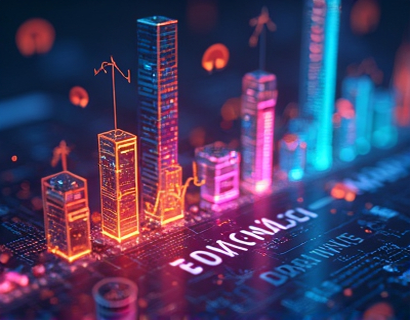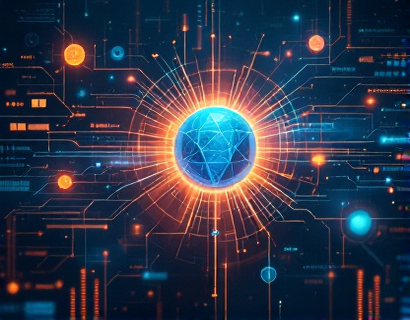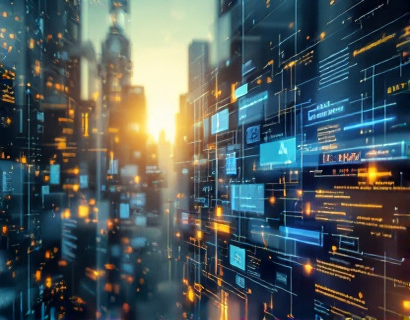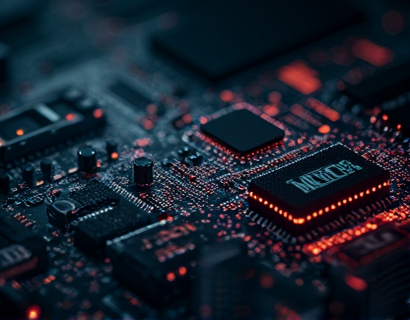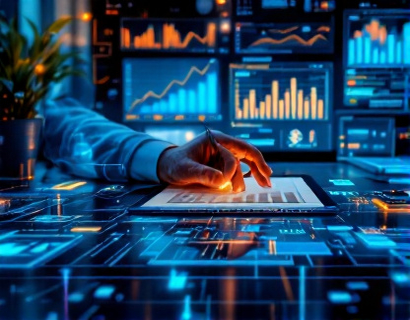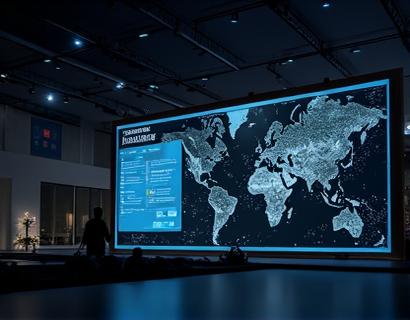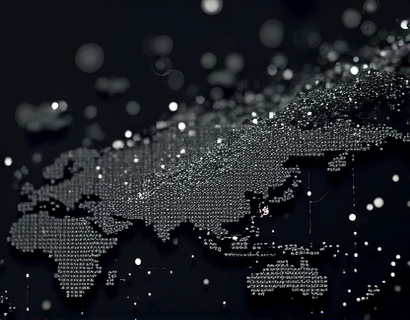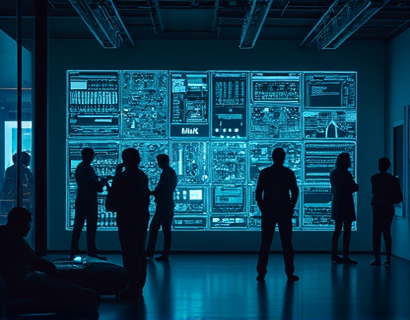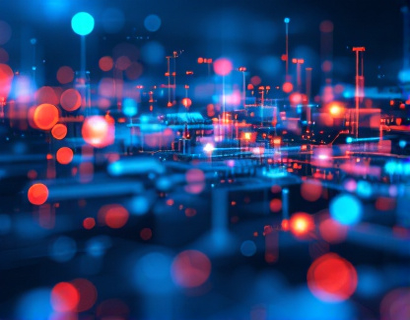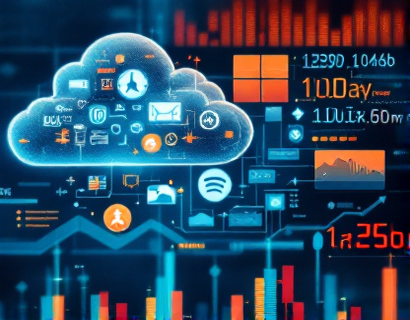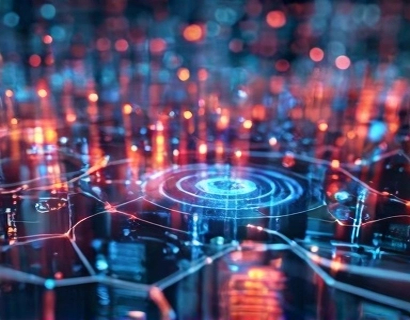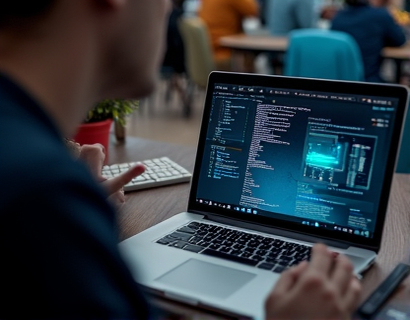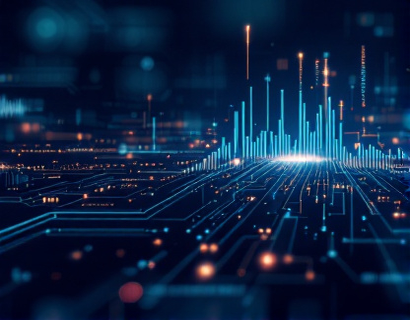Decentralized Productivity Supercharged: Harnessing AI and Crypto for Next-Gen App Ecosystems
The integration of artificial intelligence (AI) and cryptocurrency is ushering in a new era of decentralized productivity tools and app ecosystems. This transformative convergence promises to redefine how we approach work, collaboration, and efficiency in the digital age. By leveraging the strengths of both technologies, developers are creating innovative solutions that not only enhance user experience but also ensure security, transparency, and decentralization. This article delves into the intricate ways AI and crypto are merging to supercharge productivity, offering insights into the next generation of decentralized app ecosystems and their potential to revolutionize modern workflows.
To understand the significance of this fusion, it's essential to first grasp the individual impacts of AI and cryptocurrency on productivity tools. AI has already made substantial inroads into various sectors, from healthcare to finance, by automating routine tasks, providing predictive analytics, and enhancing decision-making processes. In the context of productivity apps, AI can personalize user experiences, automate repetitive tasks, and offer intelligent suggestions to boost efficiency. For instance, AI-driven virtual assistants can manage schedules, prioritize tasks, and even predict user needs before they are explicitly stated.
On the other hand, cryptocurrency and blockchain technology bring a unique set of advantages to the table. The decentralized nature of blockchain ensures that data is secure and tamper-proof, eliminating the need for intermediaries and reducing the risk of data breaches. Cryptocurrency, as a digital asset, facilitates seamless and borderless transactions, making it an ideal medium for decentralized applications (dApps) that require secure and efficient payment systems. When combined, AI and crypto can create robust, user-centric, and highly secure productivity tools that operate independently of centralized control.
The emergence of decentralized app ecosystems is a direct result of this synergy. These ecosystems are built on blockchain platforms, allowing developers to create, deploy, and manage dApps without relying on central authorities. The use of smart contracts, self-executing contracts with the terms directly written into code, ensures that transactions and interactions within these ecosystems are transparent, trustless, and automated. This setup not only enhances security but also fosters a more democratic and inclusive environment where users have greater control over their data and applications.
One of the key benefits of decentralized productivity ecosystems is the enhanced privacy and data ownership. In traditional centralized systems, user data is often stored on servers controlled by a single entity, making it vulnerable to breaches and misuse. In contrast, blockchain-based ecosystems store data across a network of nodes, making it significantly harder for malicious actors to access or alter. Users retain full control over their data, deciding who can access it and for what purpose. This level of control is particularly appealing to professionals and businesses that handle sensitive information and require stringent data protection measures.
AI plays a crucial role in enhancing the functionality and user experience of these decentralized ecosystems. Machine learning algorithms can analyze vast amounts of data to identify patterns, optimize workflows, and provide actionable insights. For example, an AI-powered project management tool can predict project timelines, allocate resources more efficiently, and identify potential bottlenecks before they become issues. Such tools can adapt to user behavior and preferences, offering a more intuitive and personalized experience. Additionally, AI-driven chatbots and virtual assistants can handle customer support, answer queries, and guide users through complex processes, freeing up time for more critical tasks.
The integration of AI and crypto also opens up new possibilities for decentralized finance (DeFi) within productivity ecosystems. DeFi platforms allow users to lend, borrow, trade, and invest in cryptocurrencies without intermediaries, offering greater financial freedom and accessibility. In the context of productivity tools, DeFi can enable new models of collaboration and compensation. For instance, a decentralized platform could reward users with tokens for contributing to community-driven projects, participating in governance, or providing valuable services. These tokens can be used within the ecosystem or exchanged for other cryptocurrencies, providing a flexible and incentivized environment for users.
Another significant advantage of decentralized productivity ecosystems is their scalability and resilience. Traditional centralized systems are often bottlenecked by their infrastructure, leading to performance issues as user bases grow. Blockchain-based ecosystems, however, can scale more effectively by distributing load across a network of nodes. This distributed architecture not only enhances performance but also increases fault tolerance, ensuring that the ecosystem remains operational even if some nodes fail. AI can further optimize this scalability by dynamically adjusting resource allocation based on real-time demand, ensuring that the system remains efficient and responsive.
Moreover, the decentralized nature of these ecosystems promotes innovation and community-driven development. Unlike centralized platforms where updates and features are controlled by a single entity, decentralized ecosystems allow developers and users to propose, vote on, and implement changes collectively. This open and collaborative approach fosters a vibrant community where diverse ideas can flourish, leading to more robust and versatile tools. AI can augment this process by analyzing user feedback, identifying trends, and suggesting improvements, thereby accelerating the development cycle and ensuring that the ecosystem evolves in line with user needs.
To illustrate the practical applications of AI and crypto in productivity ecosystems, consider the example of a decentralized collaboration platform. Such a platform could use AI to analyze communication patterns, document usage, and project milestones to optimize teamwork and streamline workflows. Smart contracts could automate task assignments, payment distributions, and milestone achievements, ensuring that all parties are held accountable and incentivized. The use of blockchain ensures that all interactions and transactions are recorded transparently, building trust among team members and stakeholders. Additionally, the platform could integrate DeFi elements, allowing team members to earn tokens for their contributions, which can be used to access premium features or traded within the ecosystem.
Security is another critical aspect where AI and crypto complement each other. In centralized systems, security often relies on complex firewalls, encryption, and access controls managed by a central authority. While these measures can be effective, they are not immune to vulnerabilities and attacks. Blockchain's inherent security features, combined with AI-driven threat detection, create a more robust defense mechanism. AI can monitor network activity in real-time, identifying and mitigating potential threats before they cause significant damage. For instance, machine learning algorithms can detect unusual patterns that may indicate a cyberattack, triggering automated responses to isolate and neutralize the threat.
Furthermore, the use of AI in decentralized ecosystems can enhance user onboarding and education. Many users are still unfamiliar with blockchain technology and cryptocurrencies, which can be a barrier to adoption. AI-powered tutorials and guided experiences can simplify the learning curve, providing personalized assistance and context-specific information. These tools can adapt to the user's progress, offering more advanced content as they become more comfortable with the technology. By demystifying complex concepts and making the technology more accessible, AI helps to broaden the user base and foster a more inclusive ecosystem.
Looking ahead, the future of decentralized productivity ecosystems is promising, with ongoing advancements in both AI and blockchain technology. The development of more sophisticated AI models, such as generative adversarial networks (GANs) and reinforcement learning, will enable even more intelligent and adaptive tools. These models can simulate real-world scenarios, optimize complex systems, and provide deeper insights, further enhancing the capabilities of productivity apps. On the blockchain front, the evolution towards more scalable and interoperable platforms, such as layer 2 solutions and cross-chain protocols, will facilitate seamless integration and interaction between different ecosystems. This interoperability will allow users to seamlessly switch between tools and services, creating a more cohesive and versatile digital environment.
In conclusion, the merging of AI and cryptocurrency is paving the way for a new generation of decentralized productivity tools and app ecosystems. These ecosystems offer enhanced security, privacy, and user control, while leveraging AI to provide intelligent, personalized, and efficient solutions. As the technology continues to evolve, we can expect to see even more innovative applications that redefine modern workflows and transform the way we interact with digital tools. For tech-savvy individuals, AI enthusiasts, and early adopters, embracing these decentralized solutions can unlock new levels of productivity and open up exciting opportunities in the digital landscape.



